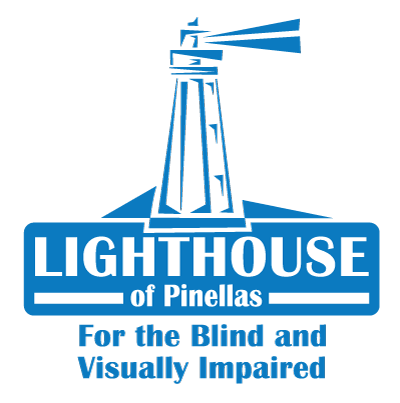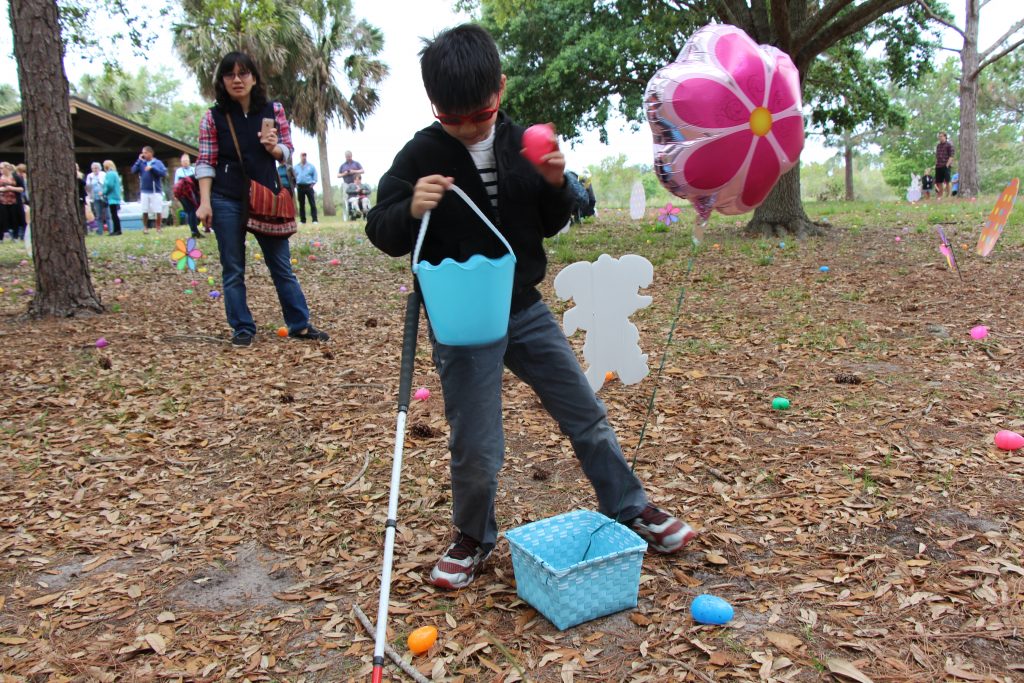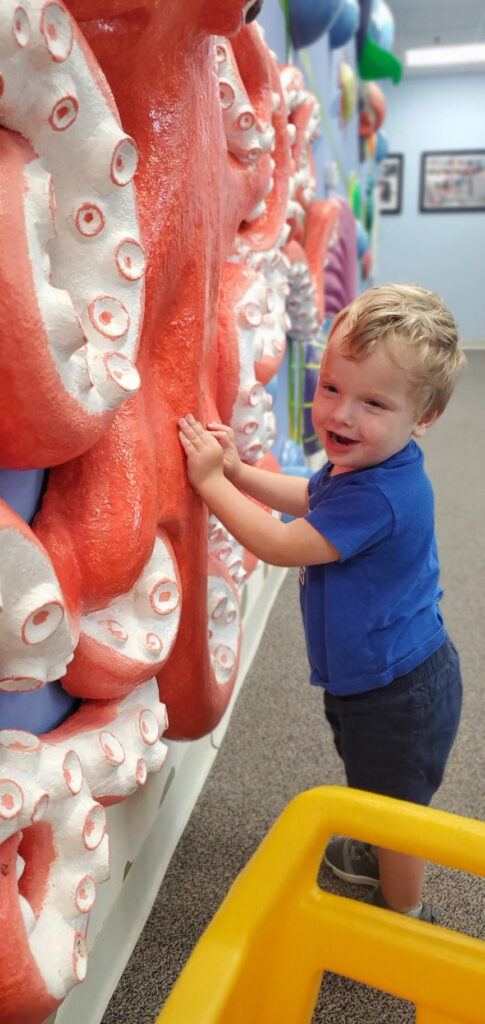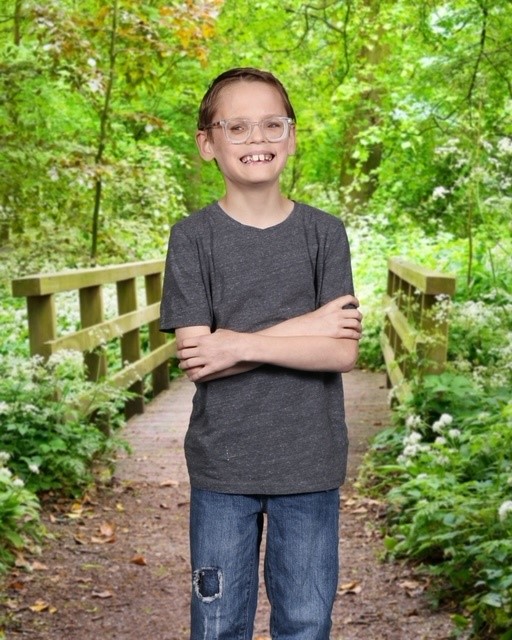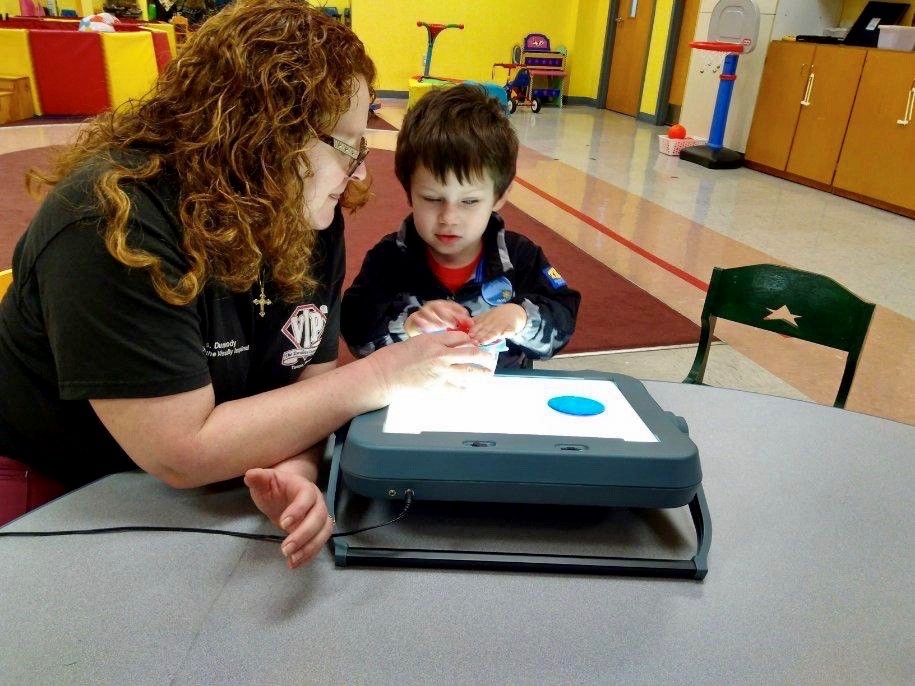Infants & Toddlers Ages 0 – 5
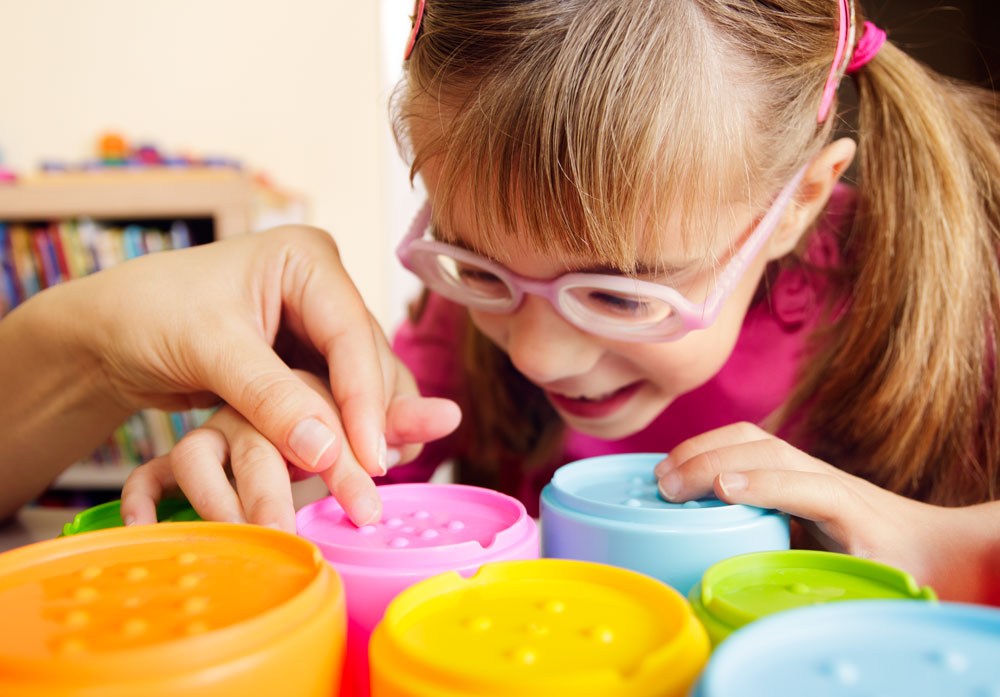
“The Lighthouse of Pinellas staff gave us the confidence to mitigate our fears and the guidance to help Bella learn. They taught Bella and us the most effective techniques and tools to awaken her desire to learn. As we reflect on the last few years and the many people that have helped us at the Lighthouse, we are thankful the organization was made available to us. I hope you realize the scope of impact you have on people’s lives and how valuable your work is.”
– Damon and Dana, parents of a child in the Early Intervention Program
We give parents hope that their child will grow up to have the same opportunities as their sighted peers.
Early Intervention Program (EI)
When we meet parents of infants or toddlers for the first time, many tell us they are overwhelmed by the challenges of not knowing how to raise a child with vision impairment. They are often afraid their child won’t be successful in school and will never have the opportunity to attend college or live on their own.
Here at the Lighthouse of Pinellas (LHP), we don’t see limitations. Early Intervention Specialists lay the groundwork for future learning by helping children from birth to 5 years progress through normal developmental stages, foster their ability to function independently and awaken their desire to learn.
Instructors provide hands-on training focused on developing mobility, sensory, motor, cognitive and social skills. Each child has an individualized care plan designed to help build a solid foundation and increase his or her success in school, at home and later in life. Instructors work with the child and family in the child’s home, day care, school and other settings.
Early Intervention services are critical in preventing unnecessary developmental delays due to vision impairment. Parents are encouraged to call Lighthouse of Pinellas as soon as their child is diagnosed with low vision or blindness.
Eligibility
To be eligible for EI services, the child must have the presence of a bilateral visual impairment and the ability to benefit from training.
Services for Babies and Pre-K Age Children
Designed to enhance early childhood development, services include:
- interaction with objects
- sensory development, touch and hearing; motor, orientation and mobility
- communication and social skills
- early literacy experiences
- self-care and independence
- cognition and concept development
- an assessment to provide an individualized program/transition plan
Parent Support
Family participation in the development and delivery of the care plan is an essential component of the Early Intervention Program. Because infants and toddlers learn primarily though sight, significant vision loss can affect their development. Since they are not able to learn by watching others, we teach parents alternative ways to help their child stay on pace with other children their age.
Some of our services include:
- Specialized training for parents and caregivers
- Playgroups and family outings to promote social skills
- Case management services for referrals and resources
- Educational resources for braille books as well as adapted materials and activities
